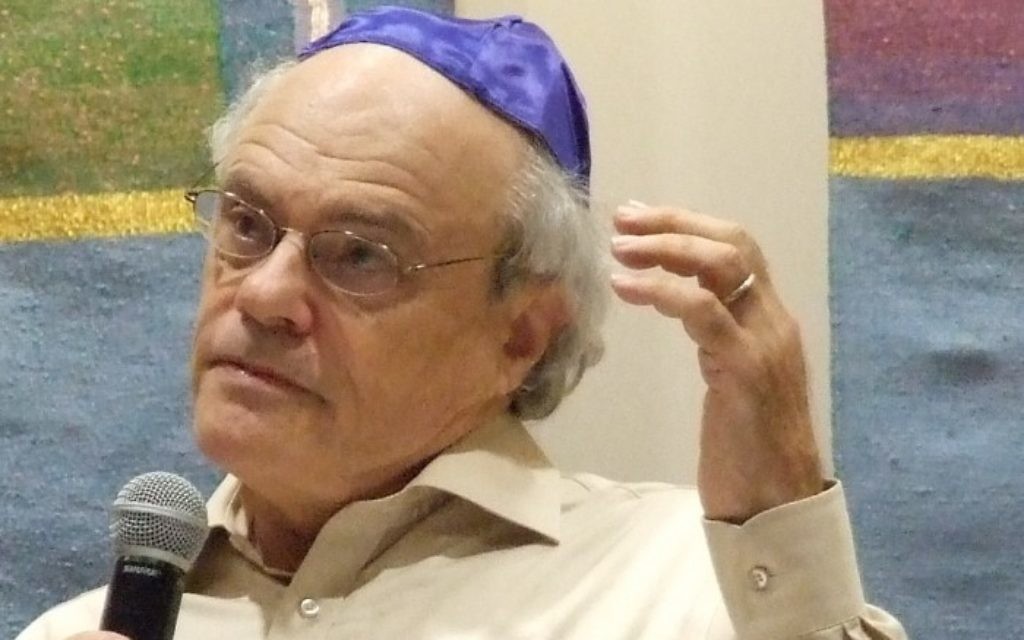Stein Warns of Iran’s Theological Threat
By Michael Jacobs / mjacobs@atljewishtimes.com

The Iran nuclear deal is neither great nor terrible, but “it’s a deal that shouldn’t have happened,” Institute for the Study of Modern Israel director and Emory University professor Ken Stein told an audience of more than 120 people Monday night, Aug. 31, at Congregation B’nai Torah.
“I don’t believe we’ve done our best” in reaching this agreement, he said.
Get The AJT Newsletter by email and never miss our top stories Free Sign Up
Still, with the deal done, the Jewish community can’t do much except to prepare for the day after it goes into effect and sanctions begin to roll back, Stein said in a lecture co-sponsored by B’nai Torah, Congregation Or Hadash and Stein’s own Center for Israel Education.
Stein found plenty of reason for disenchantment with President Barack Obama and dislike for the Iran deal Obama has promised to see enacted, even if he has to veto congressional action. The professor noted that as recently as 2013, the president had declared that an Iranian nuclear weapon couldn’t be contained and had to be prevented, but this deal will lead to Iran building such a weapon in five, 10 or 15 years if it wants to.
Iran played a waiting game, Stein said, stalling through two two-term presidents, Bill Clinton and George W. Bush, before grabbing the opportunity for a favorable agreement late in the second term of Obama.
The United States failed to adjust to the long-term clock of the Iranian regime, a regime that Obama has repeatedly called repressive and dangerous, Stein said. Yet Obama, Vice President Joe Biden and other administration officials have confidently stated that Iran will use its windfall of tens or hundreds of billions of dollars under the deal to address domestic economic problems rather than wreak havoc for Israel, the United States and its other enemies.
Anyone confident that Iran will spend its new wealth domestically should be tested “for smoking something really good,” Stein joked.
“Given its track record since 1979, I have no reason to believe that Iran is interested in behaving like Canada behaves with the United States,” he said, adding at another point, “Borders to the Iranians are only suggestions.”
The Iranian regime’s disregard for borders has grown stronger since the end of the Cold War and the failed U.S. effort to bring regime change to Iraq. Removing Saddam Hussein “popped the top” on 1,000 years of Shia chafing under Sunni rule, Stein said.
“You can’t put the Shia back in the Sunni can in Iraq. You can’t do it,” he said. “And the Iranians are delighted.”
Stein’s fear for Israel, however, is not related to the military might of Iran, even with nuclear bombs, or to the 100,000 rockets Hezbollah could fire across Israel’s northern borders. Instead, he worries about a theological struggle in which Iran, the center of Holocaust denial in the Muslim world, leads the delegitimization of Israel in the eyes of Sunnis and Shia.
“Iran is not yet, and I repeat, not yet, Nazi Germany,” Stein said.
While he expects Israel to survive for generations, he said the Jewish state can’t stand up to a theological battle with 200 million Muslim neighbors.
That’s why Israel “needs a powerful friend not willing to retreat” as the next president, Stein said. “We sitting in America had better look very carefully at who is going to run for office and who is going to represent us.”
A year from now, only two candidates for president will remain, and the Jewish community has to engage in the political process and push those candidates to commit to Israel and to take a tough line on Iran, including reinstating unilateral sanctions with some teeth if Iran wavers from its commitments.
“This is the most powerful Jewish minority that ever lived in the free world,” Stein said. “We can’t afford to be silent.”





comments